He was born in the 1932 into a noble Sidhu-Brar family in Nabha “Riyasat.” His lineage boasted of decorated generals who had served in the Army of the Maharaja of Nabha, and his doting grandmother named him “Gursharan.” Growing up in Nabha town, he received his early education there. His father, the second-born of three siblings, chose a path in medicine and became one of the first FRCS surgeons in the region. When World War II erupted, Gursharan was only seven years old, and his father volunteered to join the British Indian Army. Captain Dr Gurdial Singh served with distinction, facing the perils of battle in Italy and earning a gallantry medal.
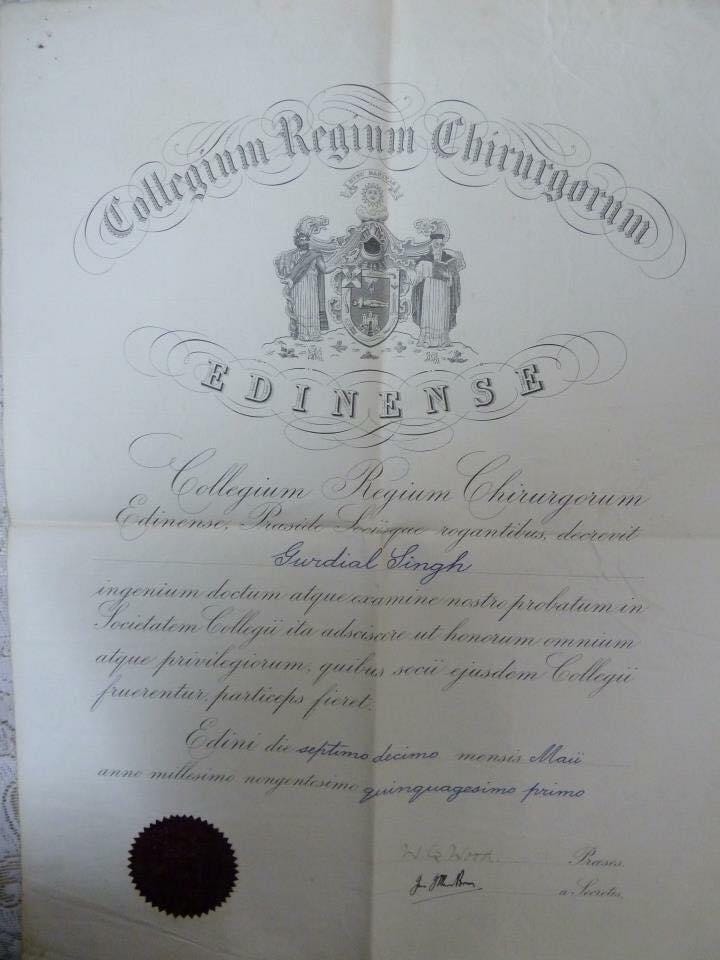
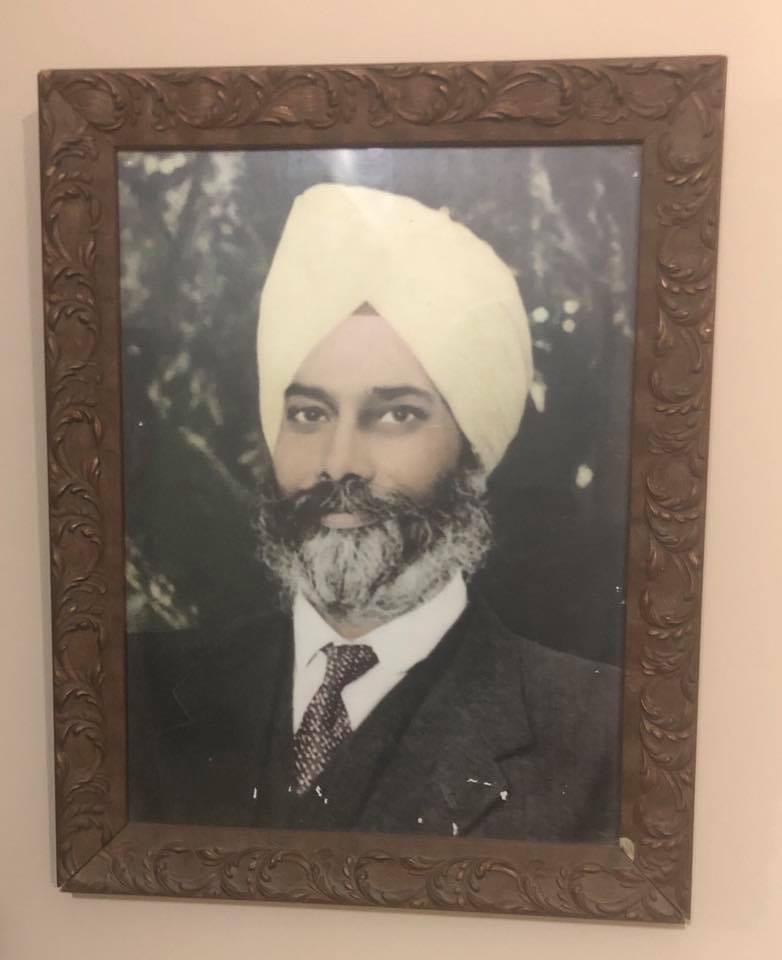
After Independence, Dr. Gurdial Singh joined the PEPSU State Health Service, which later merged with Punjab in 1956. He swiftly climbed the ranks, becoming the Professor and Head of the Surgery Department at the Government Medical College-cum-Rajindra Hospital in Patiala. Dr. Gurdial Singh was a soft-spoken and saintly man, known for his seemingly magical touch as a surgeon. Students, patients, and staff alike adored him. He also held the position of Medical Superintendent, and his official residence stood opposite the Phul Cinema, adjacent to the Fountain Chowk. This spacious, almost palatial house became a kind of sanctuary for the attendants of his patients and those from the surrounding areas near his native village, who found free hospitality there for days on end — almost as if it were their right.
Meanwhile, the young Gursharan had already completed his BA from Government Ripudaman College in Nabha and Government Mohindra College in Patiala. He went on to pursue an LLB at Delhi University’s Law Campus, excelling in sports and earning accolades in sprints and throws at the University games. Although his aspirations lay in becoming a lawyer in the Punjab High Court, which was under construction in Punjab’s new capital, Chandigarh, fate had a different plan for him. Through a state-wide competitive examination, Gursharan was directly selected as a Tehsildar, a prestigious post in those times.
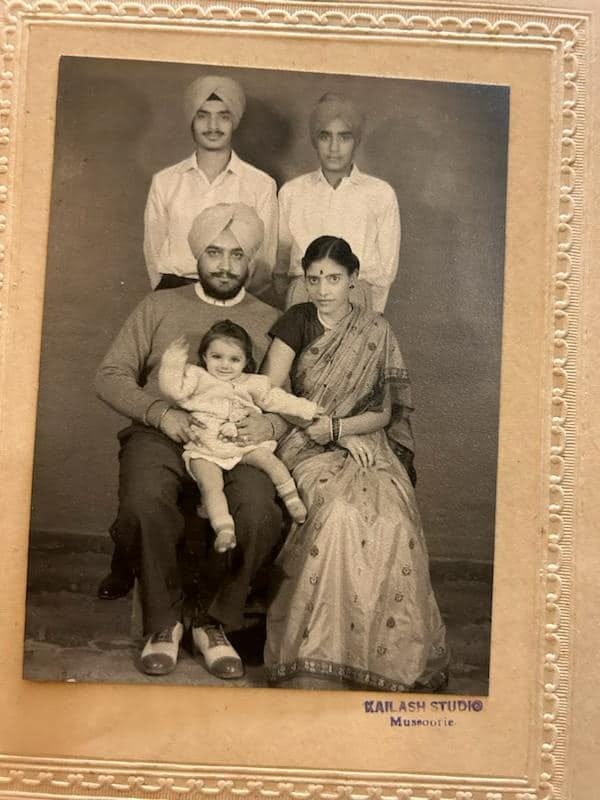
In 1958, Gursharan married the only daughter of an Indian Foreign Service Officer. He was a proud father to a daughter and a son. With distinction, he served in Rajpura, Bathinda, Malerkotla, and Nabha, earning the President of India’s Medal for outstanding work in the 1961 Census and for his Civil Defence duties during the 1965 Indo-Pak War in the predominantly Muslim town of Malerkotla.
However, on the 2nd of April, 1967, his father, the saintly surgeon, passed away suddenly, leaving an immense void in the medical fraternity and an irreplaceable loss in the family. The young Gursharan sought a transfer to Patiala to shoulder the responsibilities of the large extended family. While his younger brother and a sister, both doctors, were married and settled abroad, the youngest brother was still in school. Gursharan had to care for not only his own wife and children but also his mother, grandmother, and nearly half a dozen younger first cousins, most of whom were studying in Patiala.
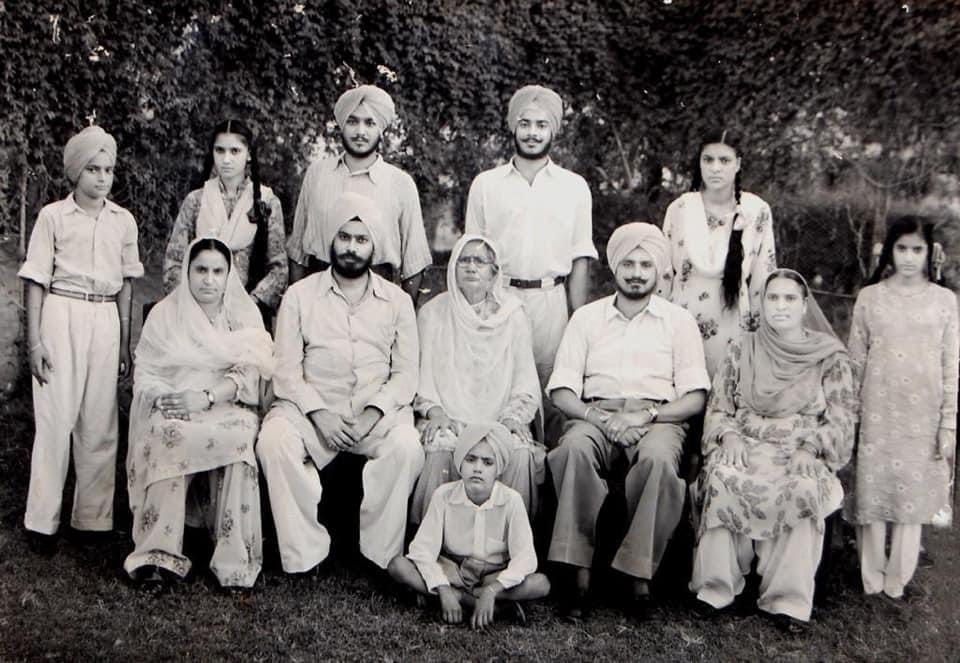
Gursharan embraced these familial responsibilities with stoicism while continuing to excel professionally as a Revenue Officer. His rescue, relief, and rehabilitation work in the villages devastated by the ferocious flood in Ghaggar River in Patiala district earned him a commendation letter from none other than Mr. AL Fletcher, ICS, arguably the most respected and feared Financial Commissioner Revenue in the history of Punjab. It was no surprise when he was promoted to PCS (Executive Branch) and appeared to be on track for further promotion as an IAS officer, given his age and the cadre-profile.
When the 1971 Indo-Pak War erupted, Gursharan, not entirely unexpectedly, chose a field posting in the border district of Gurdaspur. Besides his civil defence and relief work in the war-torn villages, he collaborated with army authorities to ensure systematic assistance by the civilian volunteers, thereby helping in maintaining the Army’s supply lines. He fearlessly entered heavily mined villages to ensure that even the most remote habitations received much-needed cash relief provided by the Government. His untimely death at Gurdaspur in the early hours of the 30th of January, 1972, at the age of not even 40 years, was a shocking and devastating blow. His immediate family, comprising his 35-year-old wife and his 12 and 10-year-old children, were left utterly shattered.
We were still residing in Patiala, and I vividly remember that foggy winter morning when a senior officer from the Deputy Commissioner’s office drove down to deliver the unthinkable and utterly shocking news of the death of my father. As a 10-year old, I felt the world collapse around me. How my mother faced this grave personal tragedy with fortitude and courage is an unparalleled story of supreme self-sacrifice which I may perhaps garner courage to tell another day. I owe everything to her, and I consider it a great fortune that she is still with us, leading a contented life.
However, not a single day passes without feeling the blessings of my father, the late Sardar Gursharan Singh Sidhu, PCS, who would have turned 91 today. He had wished for his son to become an IAS officer, and I am proud to say that I did not disappoint him. Unfortunately, his dream of the father-son duo serving as Deputy Commissioners in adjacent districts of Punjab could not materialize owing to his untimely demise.
While the world celebrates Father’s Day on the third Sunday of June, I commemorate it every year on his birthday, the 21st of June, although there isn’t a day that goes by without his fond memories. I firmly believe he is watching over all of us, guiding us with his ethereal presence and filling our hearts with his everlasting love.
Thank you, Dad!

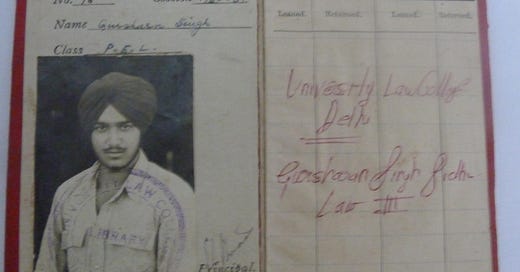


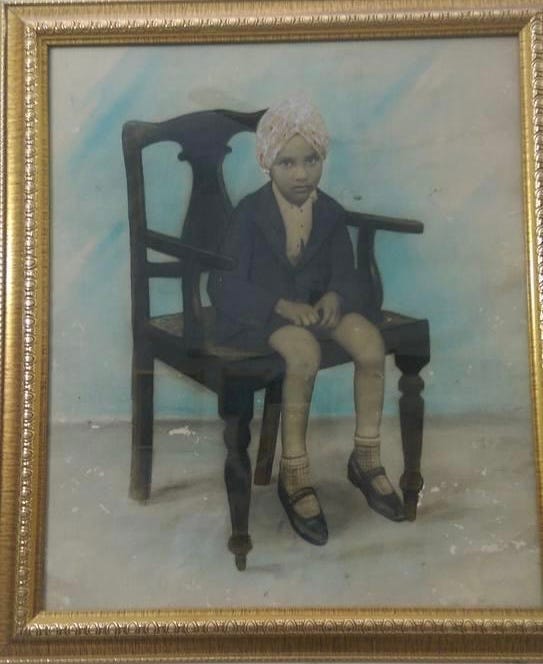


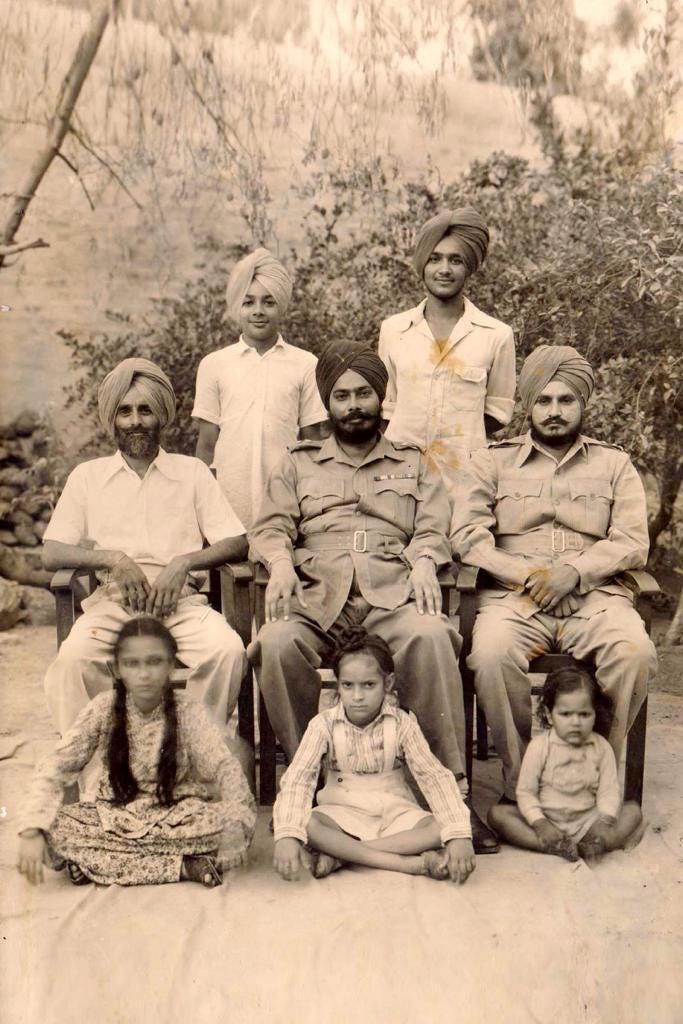
♥️♥️
It is a very touching account of your Father. Please share My Feelings with your dear Mother. All the Photos represent Royalty and Sikhi in the family.